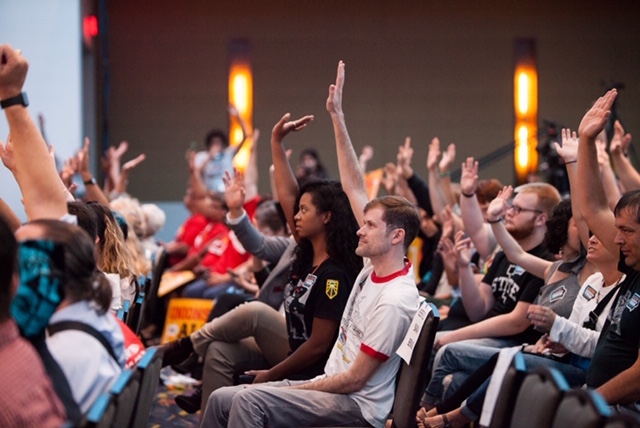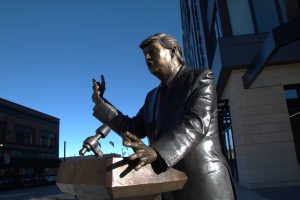The current state of politics is prompting reflections about whether enough community-level voices have a say in decision making. A coalition featuring groups from North and South Dakota says it can be hard for underrepresented populations in rural states to successfully run for office. Organizers are carving out a blueprint for these folks to enter the political arena.
In South Dakota and its neighbors to the west, grassroots groups are recruiting rural residents and other underrepresented people to seek elected office, including the local level. Organizers say they think there’s renewed energy to bring fresh voices to politics.
The Western Organization of Resource Councils, which has member groups in the Dakotas, is hosting training sessions this summer for people curious about running for seats on their local city council or school board, or even a statewide office. Gwen Lachelt with the organization says the working-class in these states could bring a deep understanding of community needs to government decision making. Winning an election is the hard part.
Lachelt says for L-G-T-B-Q-plus folks, Native Americans and immigrant populations, it’s even harder. She says prospective candidates who are on the fence have to wrestle with questions about whether they have enough time and resources to run. The free online training offers guidance on pursuing a political campaign, and how to effectively govern, if successful. The next session is on the evening of July 28th.
Lachelt points to data from AmeriCorps showing a rise in volunteer rates in the U-S as an example of people wanting to reshape narratives about democracy and civic engagement. She says despite the longstanding campaign barriers, there are recent outcomes in this region of candidates overcoming obstacles.
She’s referring to the legislative victories by candidates described as not being part of the political establishment. Redistricting changes and the new political maps that arose from them were cited as factors. In South Dakota, landowner rights have become a focal point in the Legislature, influencing races for statehouse seats and policy decisions.





